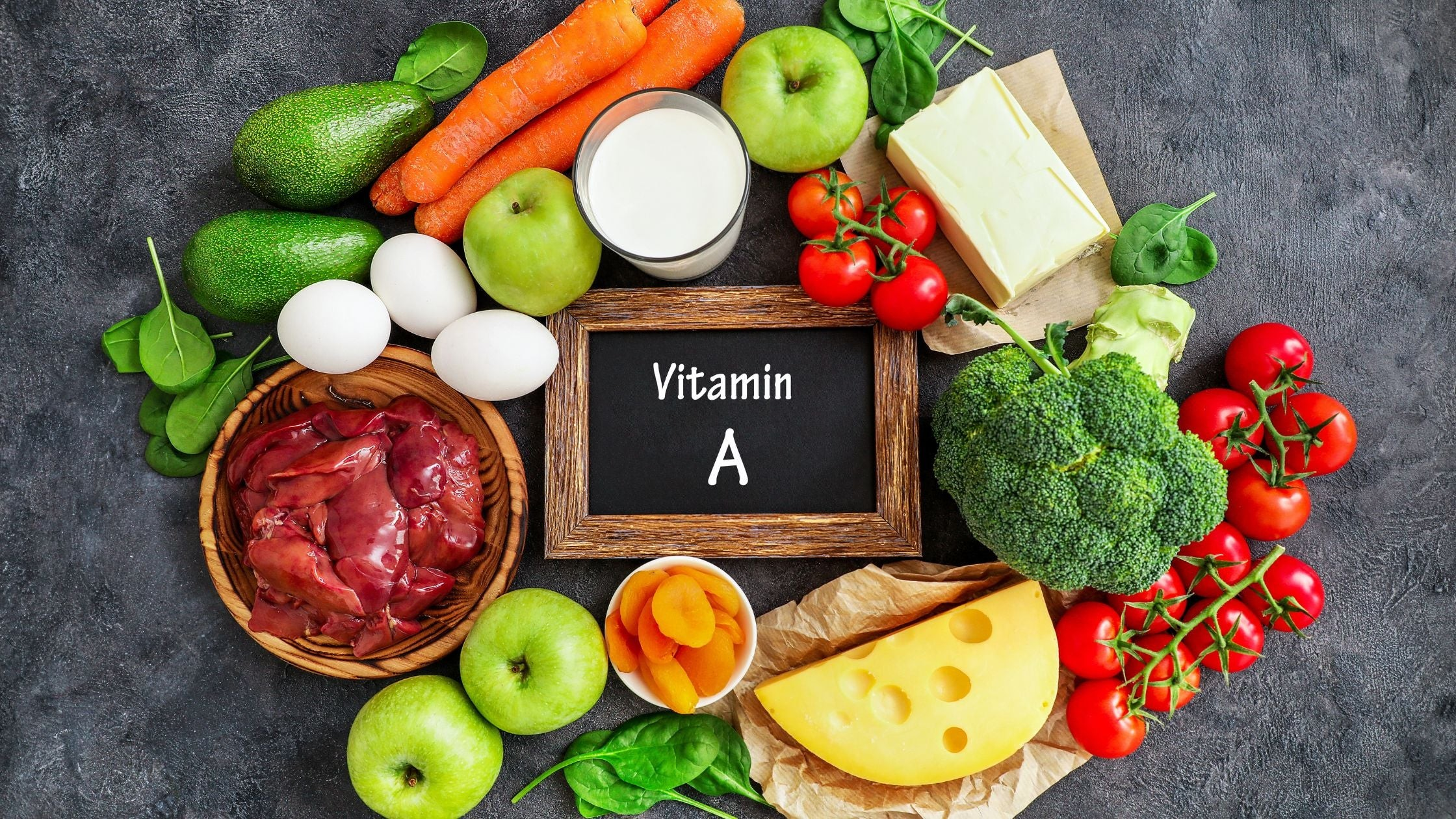Boost Your Vision Naturally: The Key Vitamin for Aging Eyes
Crafted by: Jonathan Chew
Regarding health, eye care is often an afterthought until problems arise. Many people regularly eat oranges to boost their immune systems, consume probiotic foods for gut health, and take collagen for skin support. However, they rarely consider specific nutrients for their vision. You might occasionally snack on carrots for eye health, but prioritising key eye-enhancing nutrients could be more crucial than you think.

A growing body of research is shedding light on the importance of vitamin C for maintaining healthy vision as we age. While vitamin C is often associated with immune support, its role in eye health is equally significant. In this article, we’ll explore the science behind vitamin C and how it supports your eyes over time, providing you with essential information to maintain your vision as you age.
Why Eye Health Deserves More Attention
Vision is one of our most vital senses, yet most people only start paying attention to their eye health when they experience issues like blurry vision, dry eyes, or discomfort. However, like skin, joints, or the immune system, your eyes need proactive care. They are constantly exposed to environmental stressors like UV light, screen time, pollution, and ageing, leading to deteriorating vision over time.

Caring for your eyes means being proactive about your nutrition and lifestyle choices. Among the nutrients essential for eye health, vitamin C stands out for its potent antioxidant properties and its ability to support key functions that preserve vision.
The Role of Vitamin C in Eye Health
Vitamin C, or ascorbic acid, is a water-soluble vitamin that plays a vital role in many bodily functions. Known for boosting immune health, it also acts as a powerful antioxidant that protects cells from damage by free radicals. While vitamin C’s skin benefits are well-known, it is also crucial for protecting the eyes and promoting healthy vision.
How Vitamin C Protects Your Eyes
Vitamin C provides several mechanisms of support for eye health. Most notably, it helps protect the eyes from harmful UV light and oxidative stress, contributing to age-related eye conditions like cataracts and macular degeneration.
Here’s how vitamin C works its magic on eye health:
- Acts as a Physiological “Sunscreen”
The eyes are continuously exposed to UV rays from the sun, which can lead to oxidative damage. Fortunately, vitamin C acts as a protective shield in the aqueous humour of the eye (the fluid-filled space between the lens and the cornea). A study emphasised that the high concentration of vitamin C in this part of the eye allows it to absorb UV light, much like a sunscreen for your skin. This means that vitamin C helps buffer the eyes against the harmful effects of sunlight. - Antioxidant Powerhouse
As an antioxidant, vitamin C neutralises free radicals, unstable molecules that can damage eye cells. Over time, oxidative stress can lead to the breakdown of eye tissues, contributing to conditions like cataracts and macular degeneration. By countering these free radicals, vitamin C helps maintain the integrity of eye tissues. - Supports Collagen Production
Vitamin C is a key player in collagen synthesis. Collagen is a structural protein that helps maintain the strength and structure of the cornea and the blood vessels in the retina. By promoting collagen production, vitamin C contributes to the eye’s overall health, keeping these tissues strong and resilient as you age.
Compounding Benefits: Other Antioxidants for Eye Health
While vitamin C takes the spotlight for its eye-supporting benefits, it doesn’t work alone. A combination of antioxidants is essential for comprehensive eye health. Alongside vitamin C, the following nutrients have also been shown to support vision:
- Lutein and Zeaxanthin: These carotenoids are found in high concentrations in the retina, where they protect against blue light from screens and environmental exposure. They help reduce the risk of macular degeneration, a leading cause of blindness in older adults.
- Vitamin E: Another potent antioxidant, vitamin E, works alongside vitamin C to neutralize free radicals and prevent eye oxidative stress. It also reduces the risk of cataracts.

- Beta-carotene (Vitamin A): Beta-carotene is a precursor to vitamin A, which is essential for night vision and overall eye health. Vitamin A supports the retina’s health and reduces the risk of developing age-related macular degeneration.

Can Vitamin C Prevent Eye Conditions?
While vitamin C is crucial in supporting eye health, it’s essential to understand that it is not a cure-all. Multiple factors, including genetics, lifestyle, and environmental exposures, influence age-related eye conditions like cataracts and macular degeneration. However, ensuring adequate amounts of vitamin C can help slow down the progression of these conditions and maintain better overall eye function.
Research shows that individuals with sufficient levels of vitamin C are more likely to have healthier eyes as they age. Therefore, including vitamin C in your regular diet can significantly impact your long-term vision and overall well-being.
How to Boost Your Vitamin C Intake for Better Eye Health
Aim to meet the daily recommended intake of vitamin C to support your eyes as you age. The recommended daily allowance (RDA) for vitamin C is 75 mg for women and 90 mg for men, though higher doses can offer more potent benefits, especially for eye health.
Here are a few ways to ensure you’re getting enough vitamin C in your daily routine:
- Eat Vitamin C-rich foods
Certain fruits and vegetables are naturally high in vitamin C. Some of the best sources include guavas, strawberries, bell peppers, kiwi, and broccoli. Incorporate these foods into your meals to boost your intake naturally. - Take a Vitamin C Supplement
If you struggle to get enough vitamin C from your diet alone, consider adding a supplement. Look for high-quality vitamin C supplements that are bioavailable and easily absorbed by the body. A daily vitamin C supplement can help ensure you get enough of this essential nutrient to support your eye health. - Combine with Other Nutrients
To maximise your eye health benefits, look for supplements that combine vitamin C with other eye-supporting nutrients like lutein, zeaxanthin, and vitamin E. This combination provides comprehensive protection for your vision.
Conclusion: Prioritize Eye Health with Vitamin C
While many prioritize nutrients for our immune systems, skin, or gut health, eye care is just as crucial. Vitamin C has shown to be a powerful ally for supporting eye health as we age, providing antioxidant protection and promoting collagen synthesis to maintain the structural integrity of the eyes.
Whether through diet or supplementation, ensuring adequate vitamin C intake is a simple yet effective way to preserve your vision and protect your eyes from the harmful effects of aging and environmental stressors. By prioritising vitamin C and other essential eye-supporting nutrients, you can take proactive steps to safeguard your vision for years to come. However, if you have more questions on the adequate amount of vitamin C you should take or any other inquiries, it is best to consult your healthcare professional, especially those well-trained in Nutritional & Functional Medicine.

